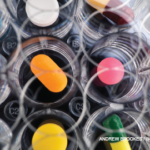Key secondary clinical outcomes were consistently better in the biologic treatment groups. These outcomes included: CDAI remission at week 24, DAS-28 remission at weeks 12 and 24, and EULAR Good Response. Key secondary outcomes demonstrated no major differences among the four treatments.
Serious adverse events, which were not delineated in the abstract, occurred in each treatment group: 28 in the certolizumab pegol group, 23 in the active conventional therapy group, 32 in the abatacept group and 20 in the tocilizumab group. No new safety signals were reported during the study.
This study showed that in untreated patients with early RA, CDAI remission rates for abatacept and certolizumab pegol were superior to active conventional treatment. Radiographic progression was low and similar among all treatments evaluated.
Michele B. Kaufman, PharmD, BCGP, is a freelance medical writer based in New York City and a pharmacist at New York Presbyterian Lower Manhattan Hospital.
References
- Østergaard M, Van Vollenhoven R, Rudin A, et al. Certolizumab-pegol, abatacept, tocilizumab or active conventional therapy in early rheumatoid arthritis: Clinical and radiographic 48-weeks results of the investigator-initiated randomized NORD-star trial [OP0058]. Ann Rheum Dis. 2022; 81(suppl 1):38–40.
- Active conventional therapy compared to three different biologic treatments in early rheumatoid arthritis with subsequent dose reduction [NCT01491815]. ClinicalTrials.gov. 2021 Jul 27.


